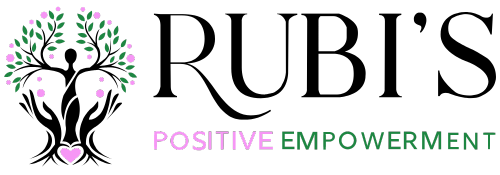
How do we honor ourselves in the demanding workplace, where it's common to feel stretched thin, managing numerous tasks and responsibilities? While being a team player is admirable, it's equally vital to acknowledge the significance of setting boundaries and responding with grace and respect when saying no.

This skill becomes a powerful means of preserving a healthy work-life balance, safeguarding mental well-being, and nurturing positive professional relationships.
The Balancing Act:
Workplaces are dynamic environments where collaboration and teamwork are highly valued. However, the pressure to constantly say "yes" to additional tasks or projects can lead to burnout and a decline in overall job satisfaction. Honoring oneself means recognizing personal limits and understanding that it's okay to decline certain requests, even if they come from well-intentioned colleagues or superiors.
The Art of Saying No:
Is saying no with grace an inherent skill, or is it acquired through guidance and experience? Contrary to the notion that saying no must be confrontational or damaging to relationships, it can be approached as an art - one demanding clear communication, empathy, and a commitment to fostering a positive work atmosphere. Mastering the skill of saying no with finesse empowers individuals to navigate professional interactions without unnecessary confrontation or harm to relationships. Here are some strategies for saying no with grace:


Express Appreciation:
Start by expressing genuine gratitude for the consideration you've received regarding the task or project. Communicate your appreciation for the opportunity while respectfully conveying your current constraints.
Example: "I truly appreciate you thinking of me for this project. It sounds like a fantastic opportunity. However, given my current workload, I'm unable to take on additional projects at this time. I value the trust you've placed in me, and I look forward to collaborating on future projects."
Be Honest and Direct:
Openly communicate the reality of your current workload and commitments. Transparency about your existing projects and priorities is crucial for helping others comprehend your limitations and make informed decisions.
Example: "I want to be transparent about my current workload, which includes [mention existing projects]. Each of these demands my full attention, and I want to ensure the success of each task. Regrettably, I won't be able to take on any additional projects at this time."
Offer an Alternative:
Demonstrate your commitment to contributing to the team by suggesting an alternative solution or offering support in a different capacity. This not only shows your willingness to help but also reinforces your dedication to the collective success of the team.
Example: "Although I'm unable to take on [specific task] right now, I'd be more than willing to assist with [related task] or provide support in another capacity. I believe this way, I can still contribute effectively to our shared goals."
Use Positive Language:
Craft your response with a positive tone to prevent the creation of tension. Emphasize what you can contribute, focusing on your capabilities rather than dwelling on what you can't do. This approach reinforces your ongoing commitment to the team.
Example: "Currently, my primary focus is on [priority project], and I'm dedicated to ensuring its success. Once that's complete, I'll be in a better position to take on additional responsibilities and contribute more extensively to our shared goals."
Set Clear Boundaries:
Clearly communicate the boundaries of your availability, emphasizing the importance of maintaining a healthy work-life balance. Politely but firmly express your commitment to prioritizing existing commitments.
Example: "I am dedicated to upholding a balance between my professional and personal life. At this time, I must prioritize my existing commitments to maintain this balance effectively. I appreciate your understanding and look forward to continuing our collaboration in the future."
Saying no is not a sign of weakness; it's a powerful declaration of self-worth and a commitment to personal well-being. By mastering the art of saying no with grace, individuals can navigate the complexities of the workplace while maintaining a healthy work-life balance. Remember, honoring oneself is not only beneficial for personal growth and satisfaction but also contributes to a more positive and resilient professional environment.






Leave A Comment
You must be logged in to post a comment.